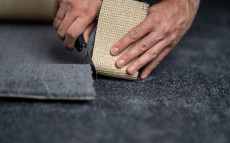- pathfindersAI
- Job Profile
Floor Sanders and Finishers
Summary
Floor Sanders and Finishers: Crafting Beauty Beneath Our Feet
What They Do
In the world of craftsmanship, few roles are as essential to the final aesthetic and functional quality of a building as Floor Sanders and Finishers. These skilled professionals are the artisans responsible for the smoothing, finishing, and polishing of wooden floors. Their meticulous attention to detail transforms raw timber surfaces into beautiful, durable, and inviting spaces. Floor Sanders and Finishers apply their expertise primarily in residential homes, commercial spaces, and various institutional buildings, setting the physical foundation for environments where people thrive.
Job Responsibilities
The responsibilities of Floor Sanders and Finishers encompass a broad spectrum of tasks. They begin with assessing the surface condition of the wooden floors to determine the extent of sanding required. This often involves preparing and setting up the work area to ensure safety and efficiency. Using industry-specific equipment such as drum sanders, edger sanders, and orbital sanders, they sand the floors to a smooth, even finish. Beyond sanding, they apply stains, varnishes, sealers, and other finishes to enhance the wood's appearance and protect it from wear. Proper maintenance of their tools and materials, cleanup of the work area, and adhering to all safety standards are also part of their essential duties. Floor Sanders and Finishers need to collaborate with other construction professionals, providing a seamless integration of that luxurious final touch.
Essential Skills
Key to the role of a Floor Sander and Finisher are strong practical skills and refined technical knowledge. Precision and attention to detail are paramount, as even the smallest of imperfections can compromise the overall quality of work. Physical fitness and stamina are crucial, given the manual nature of the job that often involves lifting heavy equipment and standing for long periods. Proficiency with hand and power tools, a good eye for color and texture, and a basic understanding of wood types and their reactions to various finishes are important. Critical thinking and problem-solving are needed to address issues that arise during sanding and finishing processes. Moreover, interpersonal skills facilitate effective communication with clients and colleagues, ensuring that expectations are met and exceeded.
Educational Pathways
While some Floor Sanders and Finishers learn their craft through on-the-job training or apprenticeships, formal education can provide a significant advantage. Vocational schools and community colleges often offer courses and programs in carpentry, woodworking, and construction technology that cover essential aspects of floor sanding and finishing. These programs typically combine theoretical knowledge with hands-on practice, providing a solid foundation for anyone entering this field. Additionally, acquiring certifications from recognized institutions can validate one’s skills and increase employment opportunities. Relevant certifications could include OSHA safety training or specialized flooring installation and finishing programs. Continuous education is also vital, as staying updated with evolving technologies and materials in wood finishing can enhance career longevity.
Career Prospects
The demand for skilled Floor Sanders and Finishers remains robust, driven by the ongoing need for new construction, renovations, and maintenance of existing buildings. Opportunities are abundant in various sectors, including residential homes, commercial establishments, and public institutions. Employment can often be found with construction companies, specialized flooring contractors, or even as self-employed business owners. As environmental sustainability continues to gain importance, expertise in eco-friendly finishing techniques can further bolster career prospects. The median wage for this occupation is competitive, with potential for growth based on experience, reputation, and additional skills in related areas such as tiling or carpentry.
Conclusion
Floor Sanders and Finishers play an indispensable role in bringing out the beauty and durability of wood flooring. Combining an array of technical skills, artistic sensibility, and physical prowess, these professionals ensure that our floors are not only functional but also aesthetically pleasing. With strong job prospects and diverse pathways to mastery, this career offers both stability and the satisfaction of craftsmanship. Embracing continuous learning and adaptability in this field will redefine spaces and leave a lasting impact on how we experience our built environment.
Video
Compensation
| State | Median Salary | Median Hourly | Positions |
|---|---|---|---|
| AK | 46,120 | 22.17 | 40 |
| CO | 48,320 | 23.23 | 200 |
| FL | 39,380 | 18.93 | 270 |
| GA | 55,630 | 26.75 | 90 |
| MD | 46,490 | 22.35 | 330 |
| MO | 52,810 | 25.39 | 220 |
| NE | 46,980 | 22.59 | 40 |
| NY | 49,820 | 23.95 | 540 |
| NC | 36,760 | 17.67 | 440 |
| PA | 46,690 | 22.45 | 170 |
| TN | 48,030 | 23.09 | 360 |
| VA | 36,350 | 17.47 | 190 |
| WA | 73,830 | 35.50 | 150 |
| WV | 36,010 | 17.31 | 50 |
| WI | 38,340 | 18.43 | 120 |
Similar Occupations
In this area you will find other occupations that are close to the one you were viewing in tasks, knowledge and work environment. If the primary job profile you are viewing isn't quite to your liking, take a look around and see what else is available.
Basic and Premium Accounts have more alternative occupations available than the Free account.

Carpet Installers - 47-2041.00
A carpet installer measures and prepares floor spaces, cuts carpeting to fit dimensions, and secures it using adhesives, staples, or tacks. They also ensure the carpet is properly stretched and fitted to avoid wrinkles and bubbles for a smooth, professional finish.
-
$47,520/yr
Median Pay -
15,560
Number of Jobs

Cement Masons and Concrete Finishers - 47-2051.00
Cement Masons and Concrete Finishers prepare, pour, and finish concrete surfaces such as floors, sidewalks, roads, and curbs, ensuring they are smooth, level, and properly textured. They use a variety of tools and techniques to achieve the desired finish and may also repair and restore damaged concrete structures.
-
$50,720/yr
Median Pay -
203,560
Number of Jobs